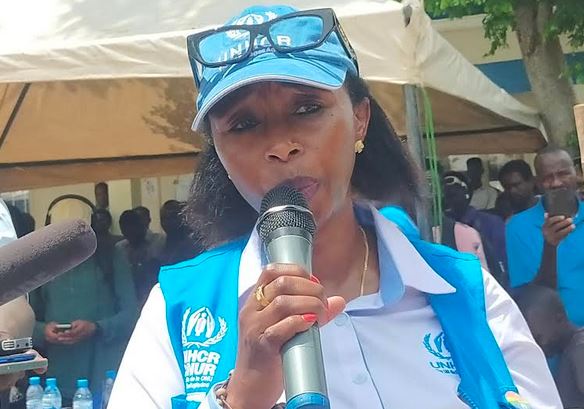The Government of South Sudan on Thursday appealed to Burundian and Ethiopian refugees to return home as the government is grappling with a refugee crisis.
Speaking during the World Refugee Day celebrations at the Gorom Refugee Settlement in the outskirts of Juba, Dut Akol Kuol, the Director General for Protection in the South Sudan Commission for Refugee Affairs, said South Sudan is hosting about 470,000 refugees from Burundi, Democratic Republic of Congo, Sudan, Central African Republic, and Ethiopia among others and that it is difficult for the government to resettle them.
“Chances of going for resettlement may not be enough for all of us, so, we better look for other activities, we better look for other durable solutions and you can integrate into our communities because there are communities that do not have problems in their areas,” Akol said.
He revealed that the government will increase land allocation to the refugee hosting areas from the current 15,000 hectares to 50,000 hectares for refugee livelihood activities.
Akol encouraged refugees from Burundi and Ethiopia to voluntarily register to return home as their countries are now stable.
“We have Ethiopia, the Anyuak who are here, there is no problem in Gambella. We have the Burundians and we still want to discuss with them because the government is encouraging all the Burundians to go back to their country,” he said. “So, we are encouraging the Burundians to come forward and tell us they want to go back to Burundi. However, that does not mean that we are chasing away people.”
According to Akol, South Sudan is struggling to provide basic services like education to refugees.
For her part, Juliette Murekeyisoni, the Deputy Country Representative of the UNHCR in South Sudan, said they are struggling to provide services to the refugees as a result of crises across the world, including the Sudanese crisis.
“The problems we are facing here in the camp are not only here but worldwide. As you know, 20 June is the celebration of World Refugee Day and you know many crises in the world, including what we have now in Sudan,” she said. “When this camp started in 2010, we had 2,000 refugees but today, we are talking about 12,000 or 13,000 refugees, so, indeed, the services are limited but that does not mean that we keep quiet. As you see here, we continue knocking on the doors of donors, looking at the possibility of continuing to support you here in the refugee camp, not only here in South Sudan but worldwide.”
Murekeyisoni urged the refugees to work with the UN Refugees agency and humanitarian partners so that they can acquire skills to use in the future when they return to their country.
“I would like to give you an example of a returnee refugee who came back from Uganda where she was a refugee and learned how to make soap. When she returned, she now has a group of about 20 women making and selling soap,” she said. “So, we are knocking on doors to make sure that we support you and you also support us. We all have brains and let us all think together to find solutions so we do not sit at home waiting for food to come to our table. What can we do together to be able to be self-reliant”




